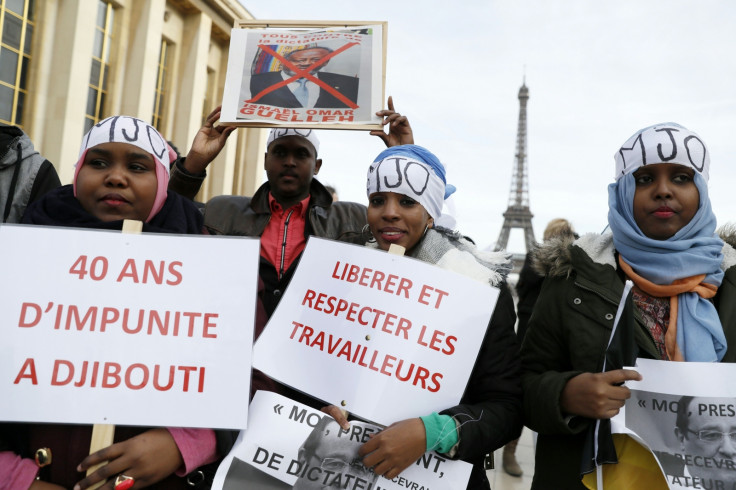Opposition condemns controversial visit of Djibouti president to France
Rights organisations claim Djibouti state violates the rights of opposition politicians.

The opposition in exile has condemned the visit of Djibouti President Ismail Omar Guelleh to his French counterpart, François Hollande, on Tuesday (28 February) morning in Paris.
In April last year, Guelleh won a disputed re-election with nearly 87% of the vote, giving him another five-year term in office – his fourth consecutive term since 1999. Guelleh's last visit to Paris was in 2011.
Guelleh is in France on a three-day state visit during which he will also meet the largest employer federation in France (MEDEF), Senate President Gérard Larcher, the Minister of Defence Jean-Yves Le Drian and the Secretary of State for Development and Cooperation, Jean-Marie Le Guen.
French media reported Guelleh and Hollande's exchange will focus on a number of points, including military cooperation and the economy. Because of its geographical position, Djibouti is an essential actor of international security, and one of France's historical partners.
A gateway to the Suez Canal, Djibouti also hosts the largest French military contingent abroad, deployed in recent years in the Central African Republic, Iraq, Yemen and Mali. The two countries are bound by a defence agreement. It is the only one to contain an automatic assistance clause in case of destabilisation of the regime.
On 25 February, the opposition in exile and human rights organisations demonstrated against Guelleh's visit. Maki Houmed Gaba, a representative in France of the Union for National Salvation (USN), urged Hollande to acknowledge the state allegedly violates the rights of opposition politicians in the Horn of Africa nation.
"We tell him (Hollande): You will receive Ismail Omar Guelleh, which is a bad campaign since Guelleh has an anti-democratic policy in his country. No opposition in Djibouti can work. The civil society, the opponents in Djibouti, almost everyone is under surveillance. Djibouti is a country completely closed to freedom, democracy and elections," Gaba is quoted as saying by RFI.
African experts say there is little hope that the two heads of state will address the human rights situation in the country, however, as Hollande is due to come to the end of his presidency in April.
The French ambassador to Djibouti was dismissed in 2015, in the wake of the massacre reportedly carried out by the security forces on 21 December 2015 in the Balbala neighbourhood of the capital Djibouti City.
There will be no press conference nor public statements following the meeting.
© Copyright IBTimes 2025. All rights reserved.






















